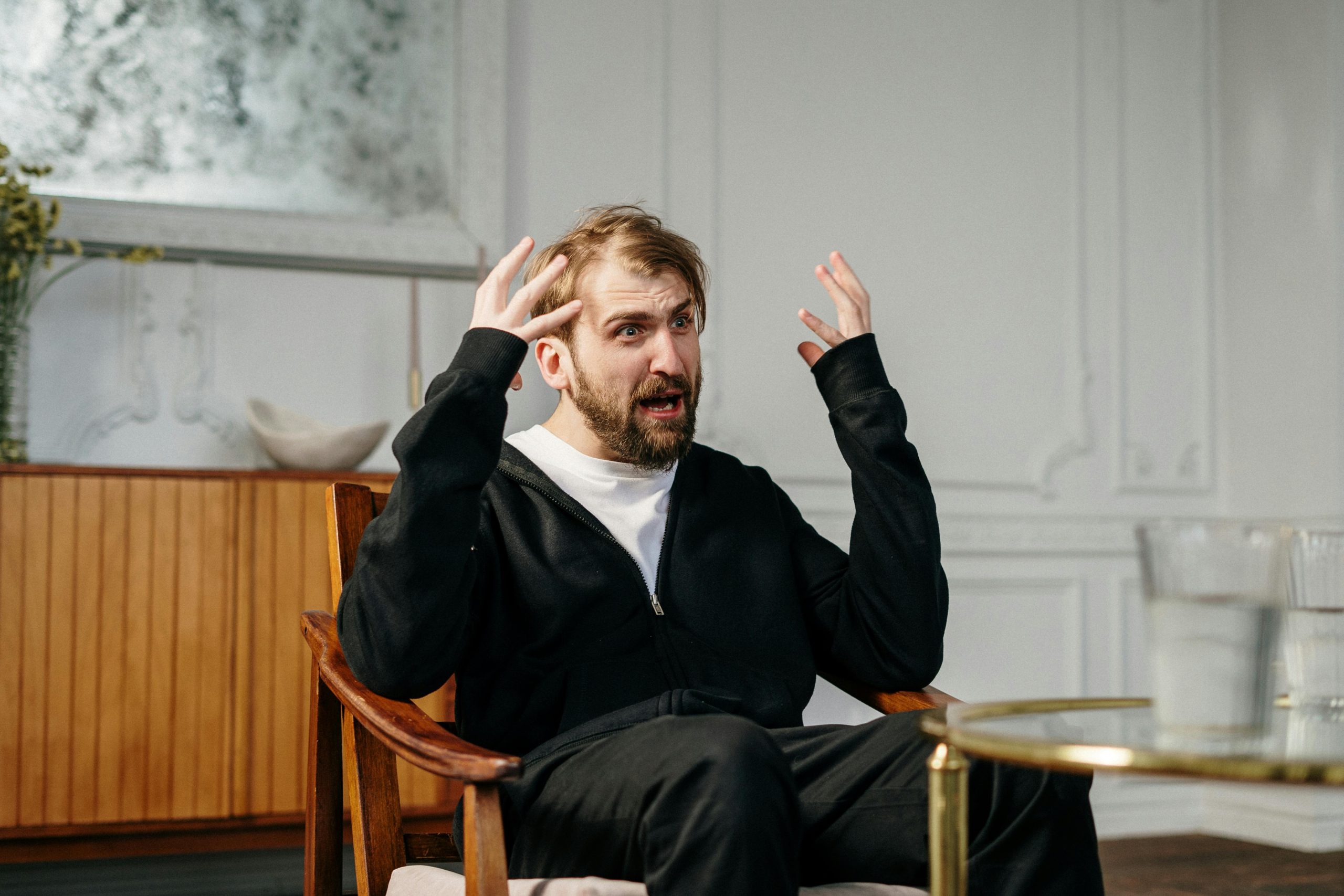How to stop overthinking in a relationship.
Why you overthink in relationships—and how to get relief.
Most people believe that the more they think, the more they will be able to solve problems and lead a happy life.
Is that true for you? Or do you notice that thinking about problems too much, only leads to overthinking?
Especially when you are thinking about a problem that doesn’t have an obvious solution. Which is common with relationship issues.
This type of thinking can become worry, which can get us trapped in a cycle of distress.
We get stuck thinking about things that could go wrong and can’t figure out what to do about them.
Mark Twain once wrote, ‘I’ve had a lot of worries in my life, most of which never happened.’
If you can relate, you are not alone.
A study by the American Psychological Society, found that 63% of men in their 40s and 50s say relationship stress is their biggest source of worry, surpassing career and financial concerns.
Yet thinking itself is not the issue. Some thinking is useful and does lead us to helpful actions.
In this guide, you will learn how to tell the difference between helpful thinking and overthinking in a relationship.
You will then learn how to stop unhelpful overthinking and become free from its stress.

1. How to stop overthinking in a relationship – understanding the problem-solving mind
Our minds are problem solving machines. Without which we would not survive.
Imagine not solving any problems. How would we learn anything? How would we make decisions? How would we work?
As a species, this incredible ability to solve problems has enabled us to survive. When we were cavepeople, figuring out how to find resources and stay safe in dangerous conditions was critical.
It becomes unhelpful when we apply problem-solving mind to emotional issues that have no obvious solution.
2. When does a problem-solving mind create unhelpful overthinking in a relationship?
Some problems do not have obvious, actionable solutions. Here are some common examples that my clients have come to me with:
‘My partner wants more affection than I am comfortable with, but I don’t want the relationship to end.’
‘I’m not sure whether I should stay in this relationship.’
‘My partner criticizes me all the time.’
‘I can’t stop thinking about other women even though I love my partner.’
Can you notice what all these issues have in common?
They all involve another person. They are also related to one of the most challenging areas of our lives: relationships.
This creates two key difficulties: when things are not going well in our relationships, we suffer a lot. Coupled with the fact that we can’t control other people’s behavior, nor can we control our own feelings.
These challenges inevitably create overthinking. This is because we feel uncomfortable and we don’t have control over this discomfort.
We begin to apply this incredible thinking machine in the wrong context. It is great at making decisions at work, or figuring out what to make for dinner.
But it is unhelpful when applied to an issue that does not have immediate actionable steps. Steps that could relieve our distress.

3. Use this question to discover whether your thinking is helpful or not?
Ask yourself, ‘Can worrying about this help me take action right now?’. If the answer is no, then you can be sure you are engaging in unhelpful overthinking.
Examples of actions might be:
- Writing a pros and cons list.
- Planning a time to have an open conversation with your partner.
- Reaching out to a friend.
- Do some reflective writing about how you feel.
- Do some research on the internet about common relationship issues to gain better insight.
- Booking a coaching or therapy session.
You can tell when your thinking becomes unhelpful, as you will notice it doesn’t help you reach any conclusions. It also makes you feel worse in the long run.
4. Discover the harmful effects of overthinking in a relationship.
Overthinking can be very addictive. It has a seductive appeal. It seems that it will lead us in the direction of relief.
It’s important that you are honest with yourself.
If overthinking were the solution to your current relationship issues, wouldn’t it have worked by now?
Think about whether you have felt better or worse when you get stuck in thought loops. I don’t know anyone who has felt better, yet I know plenty of people who have become stuck in the grip of overthinking.
Over time, people tend to feel drained, stressed, and upset as they go round and round in circles with their issues.
Also, they are not spending time on the things in their lives that are important to them. They might feel less sociable, less engaged with their kids, and less likely to do the things that they enjoy.
This means that their lives start to get worse, and they become more and more unhappy.
So, if there is no obvious answer to your issue. If if you cannot identify an actionable step to take. It might be time to accept that for now, there is no point in thinking any more about the issue and focus on something else.
Or focus on what you do appreciate about your partner or your relationship.
Neuroscience teaches us that the more we think about something, the more we are likely to think about it. Try instead to focus on something that is going well in your life.
That way, you will be more likely to start seeing things in a more positive light.
5. Unhooking yourself from unhelpful overthinking.
So, now you have identified that your thinking is unhelpful. But you can’t stop thinking. This is extremely frustrating.
If I said to you, ‘whatever you do, don’t think of a pink elephant,’ what do you think would happen? All you could think about would be the elephant, right?
So, if we can’t actually stop thinking, what can we do to release ourselves from the power of our unhelpful thoughts?
Unhooking, or cognitive defusion, is a technique that was developed by psychologist Steve Hayes to help his clients get relief from their harmful thinking.
There are several techniques that you can practice so that you can have a thought without being so affected by its impact or power.
You can make a start by trying this technique by Dr Russ Harris, author of The Happiness Trap, who has developed many easy to use unhooking tools.
If you want help to get relief from overthinking your relationship, we should talk.
No need for therapy or endless coaching sessions. I combine neuroscience and psychology tools to help you rewire your brain.
This will help you get the relationship you want.

If you want to feel less stressed and more connected in your relationship, then we should talk.
No need for therapy or endless coaching sessions. I combine psychology and neuroscience to help rewire your brain.
Get the relationship you want. Book your free call here.

I am a psychotherapist and men’s relationship coach. I have a Bachelor degree in Psychology and a Masters degree in Psychotherapy. In recent years I have focused my work on developing tools that combine neuroscience and psychology to provide an alternative to therapy. I’ve found this work particularly helpful to men experiencing relationship issues. Through these tools, I have been able to empower them to get the relationship that they want without the need for endless coaching or therapy sessions.
´Having worked with thirteen therapists, using the Rewire Tool with Jess is the only thing that has worked.´ Rob 50, happily married with two children.
If you want to be in a relationship that makes you happy, we should talk.



